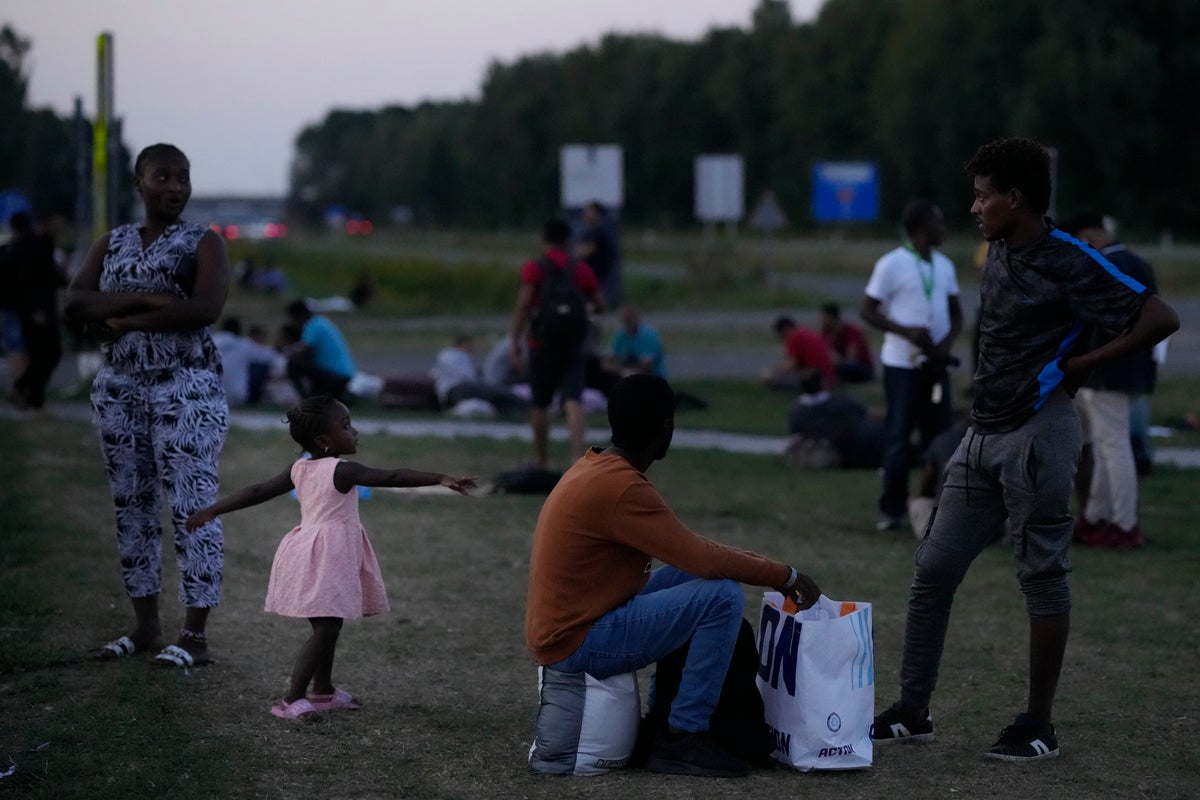
The Dutch government should drastically improve reception conditions for asylum seekers, Europe’s top human rights body has urged, after hundreds of people were left stranded in recent weeks outside the main Dutch registration center.
The Council of Europe’s human rights commissioner, Dunja Mijatovic, said in a letter to the Dutch Minister for Migration published Friday that conditions at the Ter Apel center have been worsening, “endangering the right to health of the people involved."
Mijatovic said conditions there don't meet the minimum standards set by the European Convention on Human Rights and urged the government to ensure the most vulnerable people swiftly receive proper accommodation.
Last week, hundreds of migrants were forced to sleep outdoors in squalid conditions just outside Ter Apel because the asylum center there is too full to host them. The situation is so grim that Doctors Without Borders sent a team there last week, the first time the agency has launched a mission in the Netherlands.
Meanwhile, a Dutch prosecutor said Friday that no evidence of a crime was found in the Aug. 24 death of a 3-month-old baby at the Ter Apel center. A forensic investigation has not yet established the infant's cause of death, prosecutors said.
The case is still under investigation.
Part of the problem is that people who have been granted refugee status remain in asylum-seeker centers because they have no place to move to amid a nationwide housing crisis.
Apart from the situation at Ter Apel, Mijatovic noted that many people, including some of the most vulnerable, have been staying for extended periods in emergency centers not suited for long stays. She said the current crisis “warrants a reconsideration of some more general and longer term aspects of the system for asylum reception in the Netherlands."
Noting the challenge the Netherlands faces hosting people fleeing Ukraine, Mijatovic however said she was concerned by the double standards applied in the treatments of asylum applicants.
“I am concerned about the stark differences in the treatment accorded to Ukrainians and to those of other nationalities, and join the call of others, including the Dutch National Human Rights Institution, to prevent discriminatory treatment in access to reception and other services," she said.
In a response to the letter, Dutch Migration Minister Eric van der Burg said the government has already agreed on a package of measures and a budget of €730 million to build additional emergency shelters and additional housing for beneficiaries of international protection.







